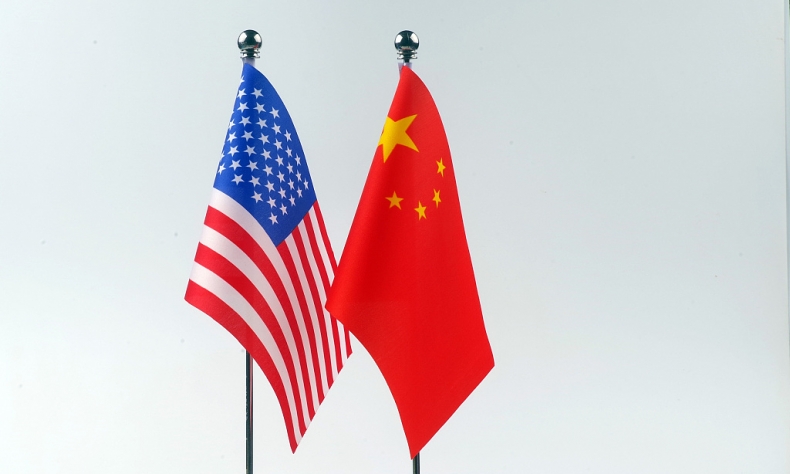US-China Reset Is Possible, But No Easy Task

Creating space for more balanced and restrained co-existence is possible and ought to be the diplomatic priority.
Since the Biden administration came into office, China has clearly made mending ties with the United States a priority, blaming the Trump administration for the damage.
In a much-publicized speech on February 22, Chinese Foreign Minister Wang Yi called for a “reset” in relations between Washington and Beijing, stating, “We stand ready to have candid communication with the U.S. side, and engage in dialogues aimed at solving problems.” Nonetheless, he also urged America to respect China’s core interests, including its territorial integrity and national sovereignty on issues related to Hong Kong, Taiwan and Xinjiang.
Unfortunately, the olive branch was quickly rejected. Spokesperson for the U.S. State Department, Ned Price, immediately tried to accuse China of “averting blame” for the dip in bilateral relations and called out Beijing for “predatory economic” practices. If anything, the United States is demanding that any recalibration of relations must first complement its own interests, which is hardly much different from what Trump and Pompeo dubbed as “reciprocity.”
China is likely to be patient and bide its time, eager to get off the Cold War path the previous U.S. presidency sought to force it onto, but it’s not going to be an easy task. While the new White House is more moderate than the last one, the underlying calculus of American foreign policy toward “great power competition” is not going to change and the political pressures to sustain it are high. This is going to require compromise with Washington, meaning there ought to be an emphasis on “win-win” diplomacy as opposed to tit for tat, giving President Biden the political space to cool things down. But even then, it’s unlikely things will be the same again.
The Trump administration undertook a fundamental reassessment of American foreign policy, moving away from international terrorism and toward the mantle of great power competition with a focus on the Indo-Pacific region. Irrespective of Trump’s more irrational and brazen moves, there is now consensus in U.S. foreign policy that China represents a “systemic competitor” to American hegemony. This thinking affects several other strategic considerations, including technology and trade, which are also seen as vital to American dominance.
However, China is not looking to displace the United States as the global hegemon, and in fact relies on stable relations with Washington to avoid disruption to its national development, something it now sees the U.S. as actively seeking to undermine. As such, Beijing avoided jumping into the zero-sum game of competition which the preceding president, as well as the media, have framed between China and America. As Wang Yi’s speech sets out, China holds a firm line on “core issues” such as Taiwan, but it wants stable ties with America, not a global struggle.
But how can this be done? America’s own strategic view of China is not going to change. There might be some internal differences on “how” to conduct its policies – some softer and others more hardline – but ultimately the American system sees other large countries as potential threats to its global dominance. Therefore, the question of relations becomes a matter of how to work within this context.
At present, Joe Biden is facing expectations to be tough. To give concessions to China, such as by lifting tariffs or removing Huawei from the entity list, would be viewed as appeasement by Republicans. If Biden is to advocate compromise with China, he has to be able to frame it as a “win” – as opposed to just giving things out of principle. This is how diplomacy works.
The biggest and most obvious avenue for this is the economic front. Biden, like Trump, is emphasizing American jobs and has leapt onto the narrative that China is detrimental to this. Irrespective of the facts that tariffs on Beijing have damaged American industry, they are nonetheless symbolic of a tougher stance.
China would be prudent to open up dialogue with the United States and look to negotiate some concessions which the White House could depict as favorable, in exchange for ending tariffs and blacklistings. For example, America desperately wants market access. If China negotiated the same privileges laid out in the EU-China investment treaty, or more, it would give space for U.S.-China ties to be framed in positive and fairer terms.
Such action of course will not resolve everything. However, creating space for more balanced and restrained co-existence is possible and ought to be the diplomatic priority. China ought to recognize, however, that this will not come on its own. It needs to be ambitious in making the first move and demonstrating good will toward America. This is the most important international relationship on earth, and definitely needs a reset. The political circumstances in Washington ultimately mean that such a move will require both time and effort – Beijing ought to live up to the challenge.
 Facebook
Facebook
 Twitter
Twitter
 Linkedin
Linkedin
 Google +
Google +







